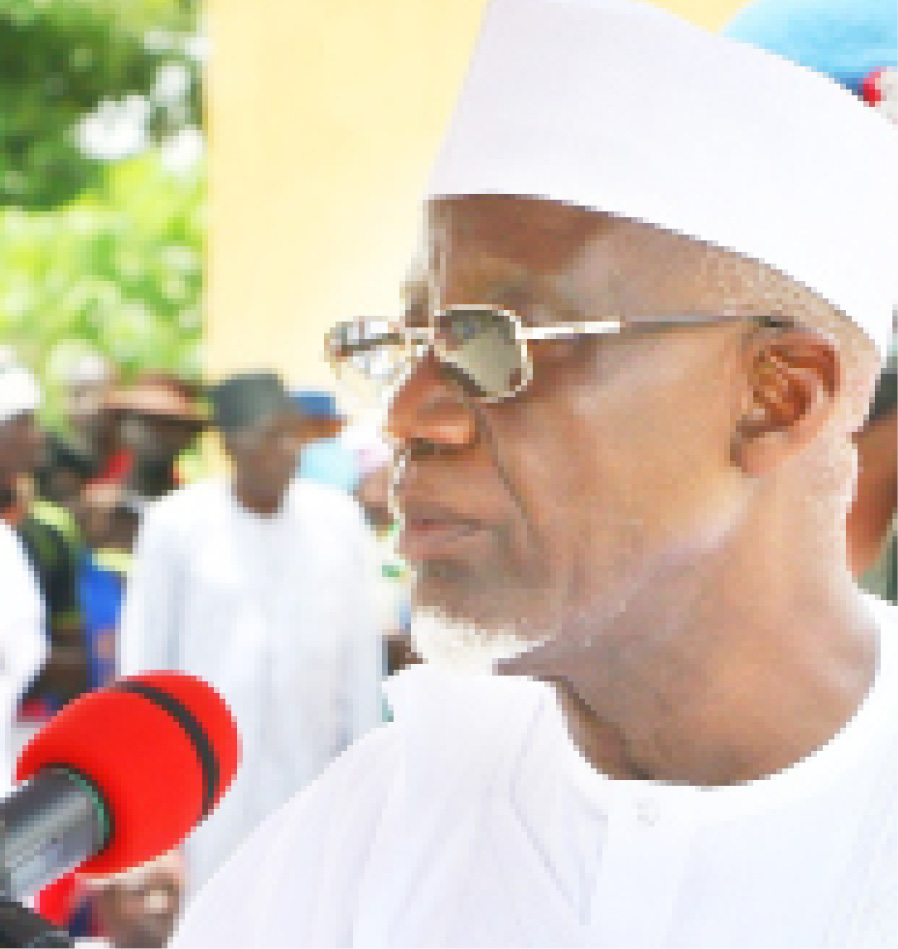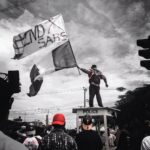In this exclusive interview with Daily Trust, the Minister of Police Affairs, Muhammad Dingyadi, spoke on the #EndSARS protest, ongoing training for the personnel of the newly created Special Weapons and Tactics (SWAT) unit of the Nigeria Police Force, the controversy surrounding the recruitment process of 10,000 constables, among other issues.
There was a nationwide protest against the operations of the Special Anti Robbery Squad (SARS) of the police in Nigeria, what is your view?
That was very unfortunate. The intention of the protesters was legitimate as they requested for an improvement in the services of the police in this country. And they were very sincere about it. We recognised the fact that they had every legitimate right to do it; that is why the government listened to them attentively and swiftly responded to their demands.
But unfortunately, as the protest continued, things started to change. The people calling for the reformation and improvement of the SARS ended up burning police stations, public buildings, breaking correctional services, banks and hospitals. The palace of the Oba of Lagos was also attacked.
The protesters and well-meaning Nigerians realised that the situation was hijacked by some miscreants, people with ulterior motives. It became clear that it was no longer a protest against the SARS.
In spite of the fact that Mr President accepted their demands, the protest continued; hence he had to come out in a very clear term to tell Nigerians that no responsible government would allow such a thing to continue, especially when it bordered on the unity and stability of the country. So government had to come in and ensure that peace was maintained.
While those who meant well ended the protest, hoodlums continued breaking stores and stealing properties of government and those of individuals.
However, with the support of traditional leaders, governors and other well-meaning Nigerians, the situation was brought to an end.
We have learnt a lot of lessons. The first lesson was that Nigerians have come of age, and people have realised that they can raise their voices and be heard. We also learnt, bitterly, that what you think is right for you may be against someone else’s right. We now realise that there are some people who are always willing to cash into opportunities to cause instability in this country.
We hope the good people of this country, particularly our youths, would continue to listen and interface with government. Let people give us the opportunity to listen to them instead of taking to the streets to burn places unnecessarily.
Having assessed the level of destruction during the protest, what next?
We have seen the level of destruction but we have not concluded assessment. We have seen the Inspector-General of Police (IGP) and other top government functionaries going round to see the extent of damages on many organisations. All these will be collated and government will proffer a way forward. There’s the need to reconstruct these things and provide interventions, particularly to small-scale businessmen and women who lost hugely in this unfortunate incident.
Recently, you appeared on a national television and spoke extensively on the newly created unit in the Nigeria Police Force – the Special Weapons and Tactics (SWAT). You also talked about a special salary structure and other issues, including training. What is the situation now?
The training is ongoing in two mobile training schools in Nasarawa and Osun states. We have selected capable policemen from state commands to undergo the training. After the training we will send them back to their respective states, with very specific mandates to pay special attention to armed robbery and respond to weapons attack incidents, respond to high profile criminal attacks, and the rest of them.
We do not expect them to act outside these mandates, particularly on stop-and- search. This is not in their area, and it has been made very clear to them. So we look forward to seeing a new set of people who would be more reasonable, humane and professional in their approach to crime.
How much is expected to be spent on this training?
I cannot say how much it will cost because it is ongoing. We have only two training institutions because the Mobile Police Training College in Gwoza, Borno State is closed because of the activities of insurgents. As you know, the one in Nasarawa is a new training college, so the issue of the capacity to accommodate people is there. That is why we are doing the training in batches. And we may not be able to say how many of them are there at the moment because some of them might have been disqualified. Also, the training will be a continuous exercise.
The Federal Government responded to the demands of the protesters by disbanding the SARS, but there are still some suspects in their detention facilities; what is their fate?
If there are some people in the cells of the disbanded SARS, the police will take appropriate action. But don’t forget that various state governments set up judicial panels of enquiry to look into the activities of that unit. The people in these cells have families, so they can take up their issues with the tribunals and it would be investigated. If there are people to be released, we will do that.
But it is not all the people in their cells that have not committed offences. Some of them might have committed offences while others were just taken there for selfish reasons. So, investigations will determine those of them that would be released and those who would be punished.
Recently, the Court of Appeal ordered that the recruitment of 10,000 constables be transferred to the Police Service Commission (PSC), what role is the Ministry of Police Affairs playing?
In the first place, I want to say that the Ministry of Police Affairs is also a party to this case. But we have been trying to interface between the two – IGP’s office and the PSC to ensure that this is amicably resolved. However, since the matter is already in court, there is nothing much one can do at this stage; otherwise we will be undermining the authority of the court.
What is the ministry’s message to police officers who are yet to go back to their duty posts?
Whenever I have an opportunity like this, I appeal to our policemen to regard this matter as one of those challenges they learned in their training. They should come out with greater minds to face the challenges of security situations in the country.
Let them go back to their duty posts. The situation is now over and we want them to continue to show good examples and learn from what happened. They are expected to be good ambassadors of the police family in this country.
We expect them to be more dedicated, professional and humane in their responsibilities. I think the IGP is passing down a similar call to them.

 Join Daily Trust WhatsApp Community For Quick Access To News and Happenings Around You.
Join Daily Trust WhatsApp Community For Quick Access To News and Happenings Around You.


